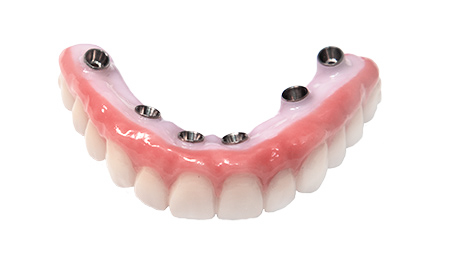Excitement About Dental Sense
Table of ContentsThe Main Principles Of Dental Sense Some Known Incorrect Statements About Dental Sense 6 Simple Techniques For Dental SenseHow Dental Sense can Save You Time, Stress, and Money.
are medical tools surgically dental implanted right into the jaw to restore a person's capacity to chew or their appearance. They provide support for artificial (phony) teeth, such as crowns, bridges, or dentures. When a tooth is shed as a result of injury or illness, an individual can experience issues such as fast bone loss, defective speech, or changes to eating patterns that result in pain.Dental dental implant systems consist of an oral implant body and dental implant joint and may also consist of an abutment addiction screw. Professional teeth whitening. The dental implant body is operatively inserted in the jawbone instead of the tooth's origin. The dental implant joint is typically affixed to the implant body by the joint fixation screw and expands via periodontals right into the mouth to support the affixed artificial teeth
(https://moz.com/community/q/user/dentalsense1)Structure of The Dental Implant System selecting dental implants, talk to your oral service provider about the possible advantages and dangers, and whether you are a candidate for the treatment. Points to think about: Your overall wellness is a crucial aspect in establishing whether you are a great candidate for oral implants, for how long it will require to heal, and how long the implant might stay in area.
Smoking might influence the healing procedure and reduce the long-lasting success of the dental implant. The recovery procedure for the implant body might take numerous months or longer, during which time you typically have a temporary abutment in place of the tooth. the oral implant procedure: Meticulously follow the dental hygiene instructions provided to you by your oral supplier.
Dental Sense Can Be Fun For Anyone
Implant failure can lead to the need for one more surgery to take care of or change the dental implant system. Brings back the ability to chew Brings back aesthetic look Assists maintain the jawbone from reducing as a result of bone loss Protects the wellness of the surrounding bone and periodontals Assists maintain adjacent (nearby) teeth steady Enhances lifestyle Damage to surrounding natural teeth throughout dental implant positioning Injury to the surrounding cells during surgical procedure, such as sinus opening Injury throughout surgery (as an example, fracture of surrounding jawbone) Inadequate feature, such as really feeling like the teeth do not bite with each other usually An experience that the tooth is loose or twisting in place resulting from an abutment screw loosening Implant body failing (looseness of the implant body) because of systemic infection, which may be most likely in individuals with unchecked diabetes mellitus as a result of neighborhood infection in bone and gum tissues sustaining the dental implant body because of delayed healing, which may be more probable in clients who smoke Difficulty cleaning the gum tissues around the dental implant, causing inadequate dental hygiene Untreated periodontal illness Post-surgical numbness as a result of nerve impingement or damage Always alert wellness care companies and imaging specialists that you have dental implants prior to any type of magnetic resonance imaging (MRI) or x-ray procedures.
FDA is not familiar with any kind of negative events reported for MRI or x-ray procedures with oral implants. Dental implants systems are generally constructed from materials that adhere to global consensus criteria of the International Company for Standardization (ISO) or ASTM International. These standards have information of what makes a risk-free material.

A dental implant is a structure that replaces a missing tooth. With screw-like gadgets, the specialist inserts a dental implant right into the jawbone, and it works as a support for a synthetic tooth, called a crown. A gadget called a joint attaches the artificial tooth to the dental implant. The crown is customized to fit the person's mouth and match the shade of their teeth.
Dental Sense Fundamentals Explained
Some individuals are not eligible for dental implant surgery. It is for dental cosmetic surgeons to operate people with: intense illnessuncontrollable metabolic diseasebone or soft cells illness or infectionIf these problems are fixed, a person can have the surgery. In, oral specialists abstain from operating individuals with: If people with any of the above undertake oral implant surgical procedure, there is a greater danger of the dental implant stopping working.

Oral dental implant surgical procedure is an individualized process. Provide you time to heal. Attach the blog post and last crown, bridge or denture.
Next, your doctor will very carefully put the dental implant right into your jaw. If your implant is near the front of your mouth, your dental practitioner will certainly make a short-term tooth for you to wear till you heal.
See This Report on Dental Sense
Your service provider can inform you what to expect in your circumstance. Throughout the healing stage, your jawbone ought to fuse to the oral implant. This procedure, called osseointegration, is crucial for security and long-lasting success. This process can take anywhere from three to 9 months. In many cases, it may take longer.
When your dental implant heals, your dentist can attach the joint (little connector blog post) and your final repair (crown, bridge or denture). This typically takes about one hour to finish and might call for a second small surgical treatment. You should not really feel any type of pain during your oral implant procedure because your provider will use medicine to numb your periodontals.